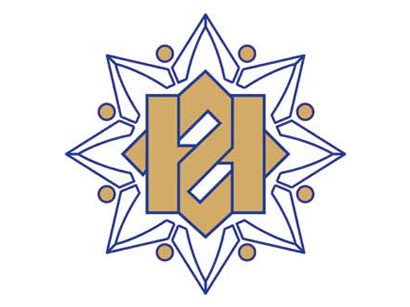Heydar Aliyev Foundation urges to join two petitions on White House website

While expressing its solidarity with everyone who supports the petition on the Khojaly genocide posted on the White House's official website on January 26, the Heydar Aliyev Foundation calls on Azerbaijani citizens, countrymen living outside the country and all who support Azerbaijan's realities, to be active in this voting, the foundation said on Monday.
The campaign launched on the eve of the 21st anniversary of the Khojaly genocide aims to attract the world's attention to the fact of genocide of Azerbaijanis committed on February 26, 1992, the recognition of these realities at the international arena.
The petition posted on the White House's website calls on the U.S. administration to recognize a proclamation commemorating the Khojaly genocide victims as well as label this fact as a war crime.
Those who signed the petition urge U.S. President Barack Obama's administration to recognize the massacre in Khojaly, to honor the tragedy victims and to support the proclamation.
Although around 100,000 signatures required for considering the petition by the U.S. administration have been collected, voting will continue until February 25.
The voting on the petition in connection with occupation of 20 percent of Azerbaijani territories by Armenian armed forces was also launched at the White House's official website.
Attention in the petition is drawn to the Nagorno-Karabakh conflict as the most tragic conflict of the 20th century which affected the lives of millions of Azerbaijanis, more than one million people who have become refugees and internally displaced people from their native lands, and the U.S. as the OSCE Minsk Group co-chairing country is being called for more active participation in resolving the conflict.
Voting on another petition, which concerns the occupation of Azerbaijan's Nagorno-Karabakh region and the seven surrounding regions, will end on February 22.
The Heydar Aliyev Foundation urges citizens and countrymen living outside of Azerbaijan, to be active in voting on this petition and show solidarity in such a national issue as informing the international community about Azerbaijan's realities.
Those wishing to participate in the petition on the Khojaly genocide at the White House's website should visit the link below:
https://petitions.whitehouse.gov/petition/issue-proclamation-commemorating-and-recognizing-war-crime-khojaly-massacre-and-its-victims/W8BbDqYx
Those wishing to participate in the petition on the Armenian-Azerbaijani Nagorno-Karabakh conflict at the White House's website should visit the following link:
https://petitions.whitehouse.gov/petition/pay-close-attention-nagorno-karabakh-conflict-20-azerbaijan-territory-was-occupied-armenian-military/mkKddcRt
On Feb. 25-26 February, 1992, Armenian occupation forces together with the 366th infantry regiment of Soviet troops stationed in Khankendi (earlier Stepanakert) committed an act of genocide towards the population of Azerbaijani Khojaly town.
Some 613 people were killed including 63 children, 106 women and 70 old men. A total of 1,000 civilians were disabled during the genocide. Eight families were killed, 130 children lost one parent and 25 lost both. Additionally, 1,275 innocent residents were taken hostage, while the fate of 150 remains unknown.
The conflict between the two South Caucasus countries began in 1988 when Armenia made territorial claims against Azerbaijan. Armenian armed forces have occupied 20 percent of Azerbaijan since 1992, including the Nagorno-Karabakh region and seven surrounding districts.
Azerbaijan and Armenia signed a ceasefire agreement in 1994. The co-chairs of the OSCE Minsk Group - Russia, France and the U.S. - are currently holding peace negotiations.
Armenia has not yet implemented the U.N. Security Council's four resolutions on the liberation of Nagorno-Karabakh and the surrounding regions.
Here we are to serve you with news right now. It does not cost much, but worth your attention.
Choose to support open, independent, quality journalism and subscribe on a monthly basis.
By subscribing to our online newspaper, you can have full digital access to all news, analysis, and much more.
You can also follow AzerNEWS on Twitter @AzerNewsAz or Facebook @AzerNewsNewspaper
Thank you!
